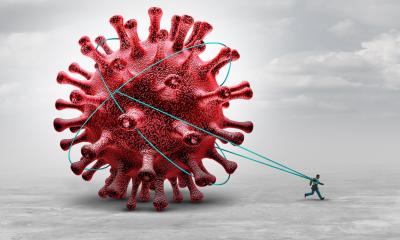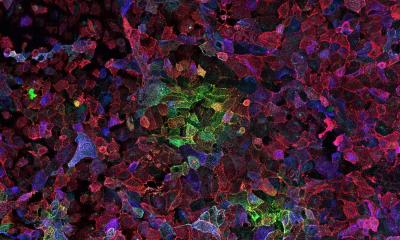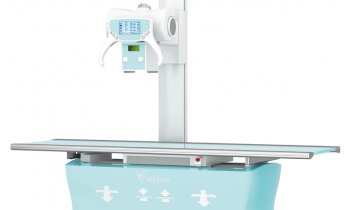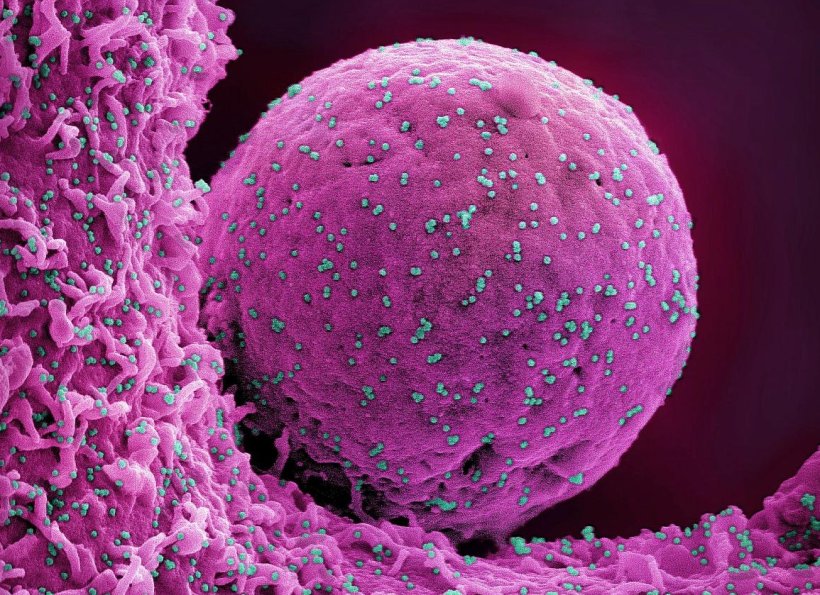
Image credit: NIAID
News • Sars-CoV-2 response study
How young children’s immune systems 'tame' the coronavirus
New research helps explain why young children have lower rates of severe Covid-19 than adults.
A study of infants and young children found those who acquired Sars-CoV-2 had a strong, sustained antibody response to the virus and high levels of inflammatory proteins in the nose but not in the blood. This immune response contrasts with that typically seen in adults with Sars-CoV-2 infection. Co-funded by the National Institute of Allergy and Infectious Diseases (NIAID), part of the National Institutes of Health, the research appears in the journal Cell.
The investigation involved 81 full-term infants and young children whose mothers enrolled in a NIAID-supported cohort study at Cincinnati Children’s during their third trimester of pregnancy. The study team trained mothers to collect weekly nasal swabs from their infants starting when the babies were 2 weeks old. The team also drew blood from the babies regularly, starting at age 6 weeks, as well as when the children became infected with Sars-CoV-2 and during subsequent weeks and months.
Recommended article
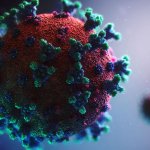
Article • Covid-19
Coronavirus update
Years after the first outbreak and spread of coronavirus Sars-CoV-2, its impact can still be felt in everyday life. Keep up-to-date with the latest research news, political developments, and background information on Covid-19.
These samples enabled the scientists to study the children’s immune responses before, during and after they were exposed to the virus for the first time. Fifty-four of the children became infected and had mild Covid-19, while 27 who tested negative through the study period served as matched controls. At the time of infection, the children were 1 month to nearly 4 years old, and half were 9 months or younger. The study also included weekly nasal swabs from 19 mothers with Covid-19 and 19 healthy mothers as controls, as well as blood samples from 89 adults with Covid-19 and 13 healthy controls.
The researchers examined many aspects of the babies’ and adults’ immune responses to the virus through an approach called systems immunology. The study revealed that young children’s antibody response to Sars-CoV-2 differs from that of adults. Typically, adults produce antibodies to the virus at levels that spike for a few weeks, then decline. In contrast, the infants and young children in the study produced protective antibodies at levels that spiked and remained high for up to the full 300-day observation period.
The scientists also found that the blood of adults with Sars-CoV-2 infection typically had high levels of proteins called inflammatory cytokines, which are associated with severe Covid-19 and death, while the blood of babies and children did not. However, the children’s noses had high levels of inflammatory cytokines and a potent antiviral cytokine.
According to the researchers, these findings suggest that cytokines snuffed out Sars-CoV-2 infection right at the site where the virus entered the children’s bodies, potentially explaining the mildness of their Covid-19 disease. The findings also suggest it may be possible to devise vaccine adjuvants that mimic the immune responses observed in young children by stimulating persistently high antibody levels without causing dangerous excess inflammation in the blood.
Children aged 6 months to 4 years who got Covid-19 vaccines before September 12, 2023, should get one or two doses of updated Covid-19 vaccine, depending on which vaccine and how many doses they previously received. Children aged 6 months to 4 years who have not been vaccinated should get two or three doses of updated Covid-19 vaccine, depending on which vaccine they receive.
Source: National Institutes of Health
17.10.2023



